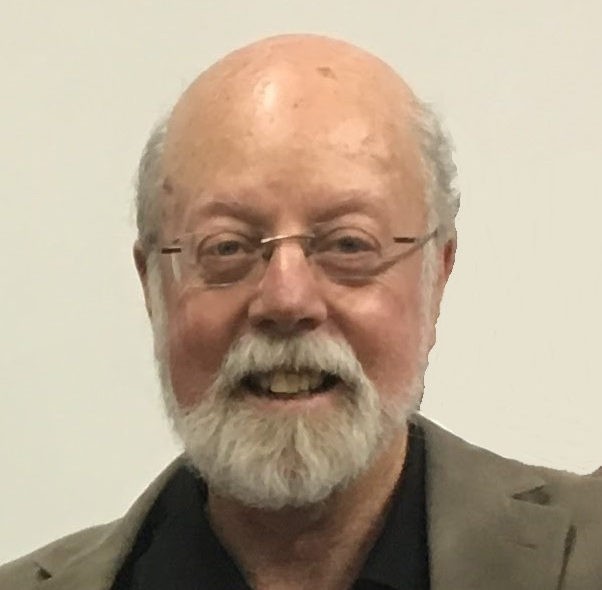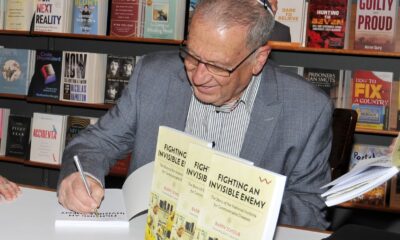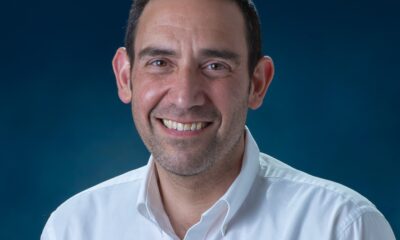
OpEds

Towards some form of normality
When the text message popped up on my phone at the end of December, I gave a huge sigh of relief. The message was from my medical-aid confirming that I was booked for the first of two COVID-19 vaccinations in two days’ time.
It had taken some time to get through to the overloaded phone lines to make the booking. The announcement by the government that the first batch of Pfizer vaccines had arrived in Israel triggered a rush by many to be first in line.
I finally reached an operator who took my ID number. She agreed that I qualified as an over 65-year-old, and with calm efficiency, offered me an appointment within 48 hours at 19:25, which was immediately confirmed by that text message. The process was, to my delight, actually working. My wife and I were among the first tranche of the Israeli population to “qualify” for vaccinations as most of the seriously ill cases and deaths had occurred in our age group.
With many swirling thoughts in my mind about events during 2020, the initial confusion, fear of the unknown, and the isolation from two full lockdowns spanning nearly four months, I was now focused on the forthcoming appointment and the first sign of hope that we might be at the beginning of the end of a traumatic year.
We drove through the eerily quiet streets to the vaccination centre, and arrived well in time. It was set up in a deserted shopping mall with seating spread out to observe social distancing protocols and a couple of desks to register those with bookings. We were quickly accepted and given a printed number and then sat to watch on large screens as the numbers and nurse locations were called. Within five minutes, our numbers came up and we were ushered into the premises of what was probably a converted shop with several cubicles. Our nurse, Hana, was chirpy even after a long day at her station and after a few clicks on her laptop to check our records, we received our jabs and were told to wait 15 minutes to ensure that there were no untoward side effects.
I looked around at the people before and after their injections, all sitting dutifully and quietly with their masks on, glued to their smartphones – typical of most Israelis – and wondered what each of their stories could tell. When was the last time they saw or hugged their grandchildren? How were elderly singles dealing with the isolation and loneliness? How were they managing financially?
The whole process took less than 30 minutes, and we were in the car headed back home. Both of us had absolutely no side effects from the jabs, but we did feel a mixture of pride in our health system and pleased at how efficient and quick the process had been.
Mainly I felt as if a large weight had been removed from my shoulders, and life felt a whole lot more positive. That was on the micro level, but on the macro level, the reality of course, looking at the steep rise in infections and serious cases of COVID-19 around the country, was very different.
As I write these words and two days before my second, “top-up” vaccination, the country is in its third lockdown. On the one hand, more than two million people have received their first dose of the vaccine but on the other, the daily infection rates and the number of seriously ill and dead are at record levels.
Israel has been vaccinating more than 150 000 people a day, but on 17 January, more than 4 000 deaths were reported since the start of the pandemic, which is a low percentage by world standards but for a small country of 8.5 million, it was still a grim milestone.
There is new uncertainty about the efficacy of the vaccinations against the various mutations that have arrived in Israel from South Africa, Britain, and possibly Brazil. I’m concerned that some people in Israel remain resistant to the very idea of being vaccinated at all, based on everything from conspiracy theories to just blind ignorance.
Copious articles have been written and spoken about in the Israeli media referring to the “zig-zag” of government policy in handling the COVID-19 pandemic. The country is amidst its fourth election campaign in two years, and many have referred to the government’s policy in handling COVID-19 as tainted in many cases by political expediency.
Much finger-pointing has been done at the ultra-Orthodox and Arab communities, who have openly ignored many of the lockdown regulations, questioning why the government has chosen to treat them with kid gloves. Why weren’t our airports controlled more assertively? Why weren’t the tracking, tracing, epidemiological, and policing resources made more efficient to isolate people infected and needing quarantine, as well as deterrent fines implemented?
Why were all decisions regarding the education system made often literally the night before, leading to children being told that schools would be closed and they were to do distance learning from the following morning? These and many other questions are still to be answered, but the “bottom line”, as they say, is that Israel is making significant strides in immunising its population.
Prime Minister Benjamin Netanyahu has said that all Israelis above the age of 16 will be vaccinated by the end of March, which puts the country in a much stronger position to start opening its economy. That timeline would probably make Israel the world’s first country to immunise most of its population from the pandemic.
In 10 days’ time, my wife and I will receive our official “green” vaccination certificates. We will be able to return to some level of normality, going to the theatre, restaurants, the beach, visit family and friends. While it will still require caution and social distancing as more data is collected on the vaccine’s ability to protect and avoid distribution of the virus, we will be projecting the clichéd “smile from ear to ear”.
It’s a bittersweet feeling at a personal level as we realise that so many around the world wait to receive their vaccinations. We look forward to the day when the vaccine is implemented globally so that we all will share a sense of security and well-being.
- Dave Bloom was born and grew up in Zimbabwe and made aliyah in 1973 with a Habonim Garin to Kibbutz Nir Eliyahu. He worked with Reuters for nearly 25 years and for the last 20 years has been a partner in a financial services software company as well as a personal historian – helping people to record their life stories.










